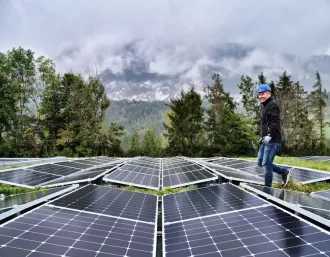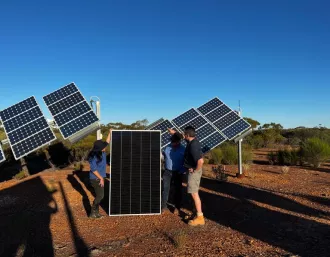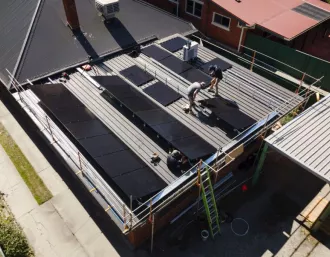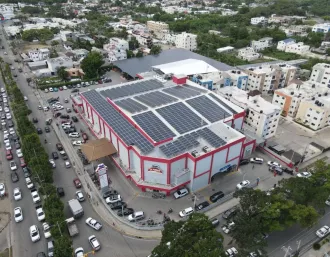Designing Sustainability Powerhouses

Buildings account for one-third of global energy consumption and a quarter of all carbon dioxide emissions, according to the World Resources Institute. The reason? The vast majority of commercial buildings today are still woefully energy inefficient and powered by fossil fuels.
But a movement is afoot to transform buildings from energy consumers to energy producers.
A design team in Norway has been using energy-positive concepts to rethink the way its buildings are designed, engineered, powered and ultimately, deconstructed. Powerhouse is a research, design and engineering collaboration of industry partners Entra, Skanska, ZERO, Snøhetta and Asplan Viak. Instead of focusing on "form follows function," the team prioritizes the environment first – focusing specifically on the effective use and distribution of energy.
Being Energy Positive
Energy-positive buildings produce more clean, renewable energy than they consume in their lifetimes, including construction and demolition. They even offset the embodied energy in the materials used to construct the buildings.
The latest example of this approach is Powerhouse Brattørkaia, an energy-positive office building in the northernmost reaches of Norway. The building relies on several high- and low-tech solutions to first reduce energy use for daily operations. This includes massive amounts of insulation and intelligent solutions for air flow to reduce the need for heating. Sea water is used for heating and cooling. Daylight conditions are optimized throughout the building design, and artificial light use is kept to a minimum.
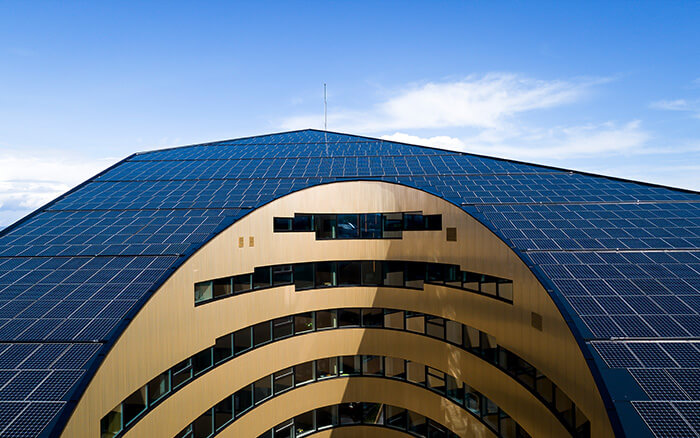
1,157 SunPower Maxeon solar panels cover the roof of Powerhouse Brattørkaia, producing on average 358,000 kWh of energy annually
A rooftop solar system, elegantly designed and expertly installed by SunPower partner Solcellespesialisten, produces more than enough energy to power the building all year while offsetting the energy costs embedded in the building's lifetime of 60 years.
Finding the Right Source Materials
Designing a building to cover its own energy use is one thing; accounting for the energy used to manufacture all of the building's materials is quite another.
"We had to use products that had documentation showing how much energy is embedded in sourcing and manufacturing," explains Cecilie Jonassen, Director of Business Development at Solcellespesialisten.
When it came time to select a solar panel for the project, the team chose SunPower Maxeon, which generate up to 35% more energy over 25 years compared with conventional panels in the same space.2 SunPower 400 W, 22.6% efficient, compared to a Conventional Panel on same-sized arrays (310 W mono PERC, 19% efficient, approx. 1.64 m²) SunPower's high efficiency, excellent wind load resistance and spectral light advantage were crucial for the location. But it was SunPower's commitment to sustainability that clinched the deal. As the winner of pv magazine's first industry Sustainability Award in 2019, SunPower is proud to be the leader in solar sustainability. As the Powerhouse team evaluated suppliers, it was SunPower's Declare Label – like a nutrition label for a product – that stood out.
A Declare label helps designers understand how products are made, including information on source materials, manufacturing location, life expectancy and recyclability. SunPower is the first and only global solar panel manufacturers to provide this information and transparency. As the Declare label shows, SunPower's Maxeon DC solar panels are free from harmful substances such as lead or cadmium and do not require hazardous waste handling procedures during the recycling process. SunPower also leverages our Supply Chain Sustainability Program to help our suppliers meet our environmental, health, safety, labor, ethics and chemical content requirements.
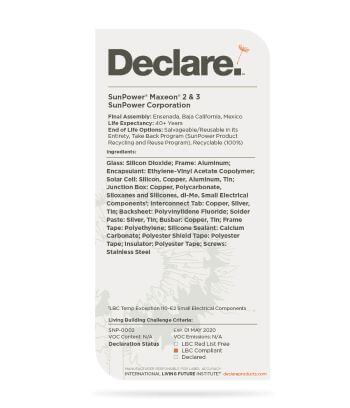
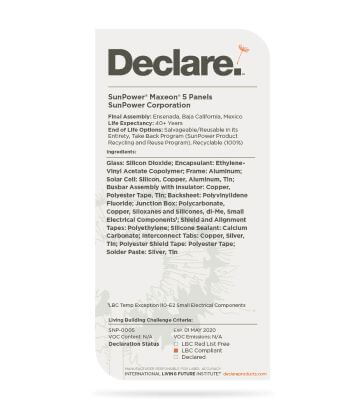
SunPower is the first and only solar manufacturer to disclose our panel ingredients through the Declare label.
For its efforts, Powerhouse Brattørkaia has received the BREEAM Outstanding certification, the highest possible ranking by the world's leading sustainability assessment method for an asset's environmental, social and economic sustainability performance. Its solutions support the UNFCCC Paris Agreement that pursues efforts to limit the global temperature increase to 1.5 degrees Celsius.
To attain this climate goal, the world's buildings must be part of the solution. Powerhouse Brattørkaia demonstrates what's possible when environmental design principles come first. SunPower is proud to stand with this team. For more details on the solar design at Powerhouse Brattørkaia, read Power to Spare case study.
